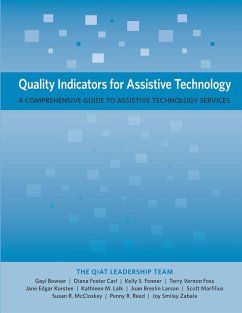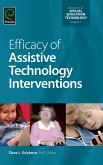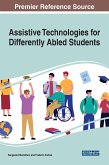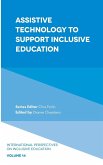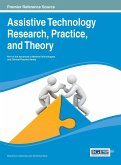Work on the Quality Indicators for Assistive Technology (QIAT) began in the summer of 1998 when a group of assistive technology (AT) service providers shared their concerns about the complexity of selecting, locating, and delivering AT and AT services in K-12 and postsecondary environments. They agreed on the need for professional guidelines to improve the quality and consistency of AT delivery. Since then, the QIAT Leadership Team has gathered input from more than 4,000 individuals ranging from students and families to school staff, policy makers, and higher education faculty. After many drafts and revisions informed by the field, the result is the Quality Indicators for Assistive Technology: A Comprehensive Guide to Assistive Technology Services. This book will prove indispensable for:School districts as they strive to develop and provide quality assistive technology services aligned to federal, state, and local mandates Assistive technology service providers as they evaluate and constantly improve their services Consumers of assistive technology services as they seek appropriate assistive technology services that meet their needs Universities and professional developers as they conduct research and deliver programs that promote the development of the competencies needed to provide quality assistive technology services Policy makers as they attempt to develop judicious and equitable policies related to assistive technology services. Filled with information and supports such as self-evaluation matrices, suggested activities, checklists, and other helpful tools, Quality Indicators for Assistive Technology is a clearly written and well-organized resource for those who seek to ensure that quality AT services are provided.
Hinweis: Dieser Artikel kann nur an eine deutsche Lieferadresse ausgeliefert werden.
Hinweis: Dieser Artikel kann nur an eine deutsche Lieferadresse ausgeliefert werden.

